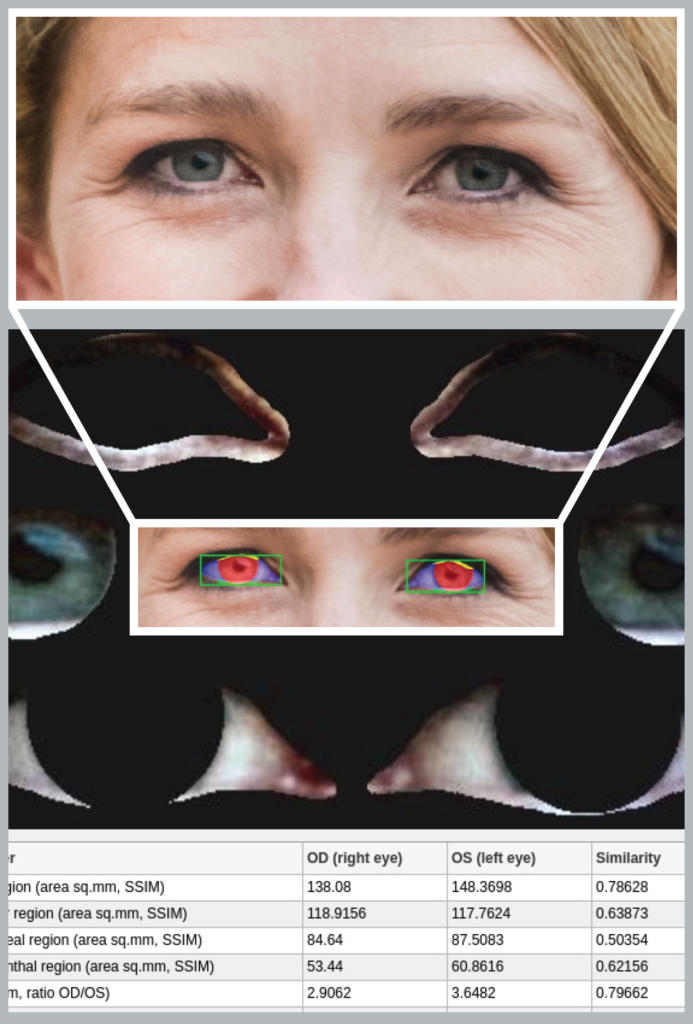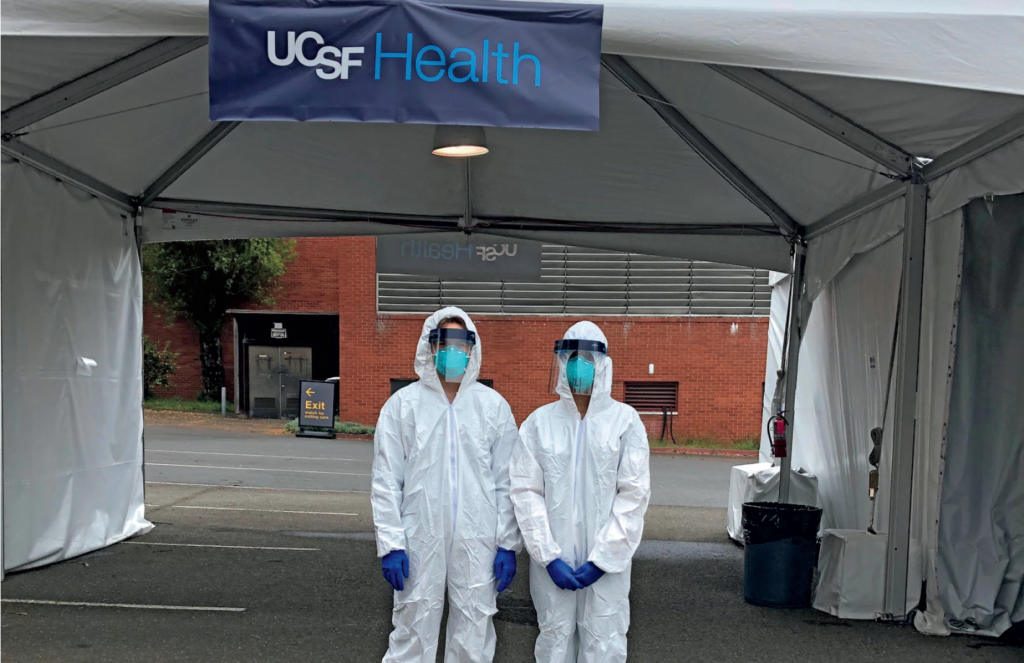
At press time, UCSF vision scientists had already launched 18 research projects to address aspects of the COVID-19 pandemic. Here are a few highlights.
Forecasting Viral Spread in California
Travis Porco, PhD, MPH; Lee Worden, PhD; Seth Blumberg, MD; and Rae Wannier, BS; of the Proctor Foundation are analyzing mathematical models to guide public health policy, in coordination with the San Francisco Department of Health. The team’s analysis focuses on real-time assessment of current control measures, as well as analysis of contact investigation, mask usage, and social distancing.
Using Artificial Intelligence and Selfies to Diagnose Eye Diseases
Luca Della Santina, PhD, and Michael Deiner, PhD, lead a team of clinicians and computer scientists to develop “deep learning” methods that can identify conditions that affect the surface of the eye (external disorders) from selfie images taken by patients (or their families or caregivers) at home. This tool has strong potential to support telemedicine for vision care during and after the pandemic. Collaborators include Seanna Grob, MD; Julius Oatts, MD; Gerami Seitzman, MD; Tom Lietman, MD; and M. Reza Vagefi, MD.
Home Testing for Glaucoma Patients
Yvonne Ou, MD, and Michael Deiner, PhD, are studying whether a novel mobile visual field test for glaucoma patients can provide an effective at-home alternative to conventional in-clinic testing during the pandemic. Co-developed with Vivid Vision, Inc., the test uses inexpensive virtual reality headsets and oculokinetic perimetry methods pioneered by Bertil Damato, MD, PhD, FRCOphth. Dr. Ou can quickly evaluate the results of tests that her patients perform in their homes.

Pinpointing Short-Distance Viral Spread
Julie Schallhorn, MD, and Gerami Seitzman, MD, lead two investigations to determine the presence and prevalence of aerosolized SARS-CoV2 viral particles emitted when patients speak (or sing!). One focuses on people at a testing site and the other on patients convalescing at home. The team also includes Thuy Doan, MD, PhD, who performs the genetic diagnostic testing, and Miel Sundararajan, MD. Findings will inform future safety guidelines.
UCSF East Bay Vision Clinic
Providing vision care in comprehensive ophthalmology, glaucoma, retina, oculoplastics, and optometry. Call 415.353.2800 to discuss moving your vision care.
Research support is provided by the National Institutes of Health, Research to Prevent Blindness, and That Man May See.
